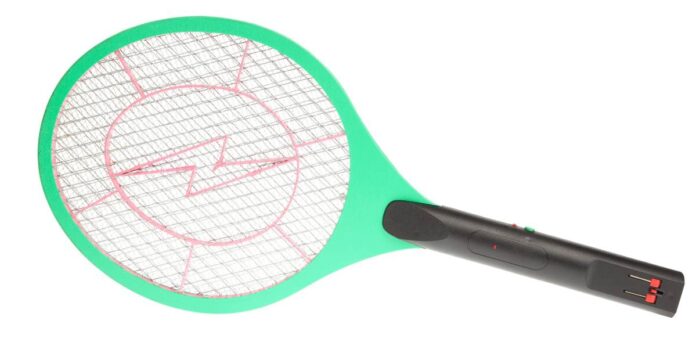Camping is a beloved pastime that allows us to reconnect with nature, but it often comes with one major drawback: bugs. Whether it’s mosquitoes, ticks, or flies, these pesky insects can quickly turn a peaceful outdoor retreat into an uncomfortable experience. The good news is that there are numerous ways to keep bugs at bay while camping, from natural remedies to innovative products and cutting-edge technology.
Natural Remedies to Deter Bugs
One of the most effective and environmentally friendly ways to deter bugs is by using natural remedies. Essential oils like citronella, eucalyptus, and lavender are well-known for their insect-repelling properties. Citronella, in particular, is a popular choice and can be used in various forms, such as candles, sprays, or even infused into bracelets. Rubbing a mixture of these essential oils diluted in a carrier oil directly onto your skin can provide hours of protection against mosquitoes and other insects. Similarly, burning sage in your campfire produces a pleasant aroma that also acts as a natural bug repellent, helping to keep mosquitoes at a distance while you enjoy your evening. For those seeking a more environmentally friendly approach, natural solutions can be highly effective. Additionally, consider using plants that naturally deter insects, like basil, mint, or marigolds, around your campsite.
Chemical Insect Repellents: Stronger Protection When Natural Remedies Fall Short
When natural remedies like citronella candles or essential oils aren’t sufficient to keep pesky insects at bay, chemical repellents can provide the robust protection you need for a comfortable outdoor experience. Whether you’re camping, hiking, or enjoying a backyard BBQ, choosing the right chemical repellent is essential for safeguarding yourself and your family against mosquitoes, ticks, and other biting insects.
Effective Ingredients in Chemical Repellents
Chemical insect repellents are formulated with active ingredients proven to deter insects effectively. The most common and highly recommended ingredients include:
DEET (N,N-Diethyl-meta-toluamide)
- Effectiveness: DEET is one of the most effective insect repellents available, providing long-lasting protection against mosquitoes, ticks, and other biting insects.
- Concentration: Available in various concentrations, typically ranging from 10% to 30%. Higher concentrations offer longer protection but aren’t necessarily more effective at repelling insects.
Picaridin (also known as Icaridin):
- Effectiveness: Picaridin is nearly as effective as DEET but tends to be less greasy and odoriferous, making it a popular alternative.
- Advantages: Non-irritating to the skin, safe for use on sensitive areas, and suitable for children.
IR3535 (Ethyl butylacetylaminopropionate):
- Effectiveness: Effective against mosquitoes, ticks, and other biting insects. Often found in Europe-based products.
- Usage: Mild and safe for sensitive skin.
Oil of Lemon Eucalyptus (OLE):
- Effectiveness: A plant-based alternative that provides comparable protection to lower concentrations of DEET.
- Note: Not recommended for children under three years old.
Keeping Bugs at Bay: Innovative Products for Campers
In addition to natural remedies, there are several products designed to keep bugs away from your campsite. Mosquito nets are a classic and reliable option, especially when used to cover sleeping areas. Hanging a mosquito net over your tent entrance or around your hammock ensures a restful sleep without the annoyance of buzzing insects.
Modern technology has also introduced new ways to keep bugs at bay while camping. One such innovation is the portable bug zapper, which uses ultraviolet light to attract and eliminate flying insects. These devices are compact, easy to use, and can be powered by batteries or USB, making them a convenient addition to any camping setup. Another technological advancement is the development of wearable insect repellent devices. These gadgets, often worn as bracelets or clipped onto clothing, emit ultrasonic waves that are imperceptible to humans but drive mosquitoes and other bugs away. This hands-free solution is particularly appealing for those who want continuous protection without the need for reapplication.
Specific Pest Prevention Tips
For campers venturing into tick-prone areas, it’s crucial to take additional precautions. Wearing light-colored clothing makes it easier to spot ticks, and tucking pants into socks creates a barrier that helps prevent ticks from attaching to your skin. Applying permethrin, a powerful insect repellent, to your clothing and gear offers long-lasting protection against ticks and other insects. This method is especially useful for those planning extended hikes or spending time in densely wooded areas.
Maintaining a clean and well-organized campsite is another key strategy for keeping bugs away. Insects are attracted to food scraps and strong odors, so storing food in airtight containers and disposing of trash properly can significantly reduce the number of bugs around your camp. Additionally, setting up camp in breezy areas can help keep flying insects at bay, as they tend to be less active in windy conditions.
Mosquitoes:
Choose a campsite away from stagnant water, as mosquitoes breed in these areas. Wear long sleeves and pants, and use mosquito nets or canopies.
Ants:
Keep your campsite clean and free of food scraps. Seal food containers tightly and place them in airtight bags. You can also use ant traps or baits to eliminate infestations.
Spiders:
- Inspect your tent and sleeping bags before settling in. Avoid leaving clothes or other items on the ground, as spiders may hide in them.
Ticks:
Wear long pants and tuck your pants into your socks. Check yourself for ticks frequently, especially after spending time in wooded areas.
Additional Tips to Prevent Pests at your Campground
- Campfire smoke: Mosquitoes and other insects often dislike the smell of smoke. A well-maintained campfire can help deter them.
- Hygiene: Practice good hygiene by washing your hands frequently and avoiding leaving food scraps lying around.
- Camping gear: Invest in a quality tent with built-in insect screens. Consider using a portable fan to circulate air and deter insects.
By combining natural and chemical methods, you can significantly reduce insect annoyance during your camping trips.Remember to choose products that are effective and safe for both you and the environment. With a little preparation and awareness, you can enjoy a peaceful and bug-free camping experience.
In conclusion, keeping bugs away while camping requires a combination of strategies, from natural remedies and product solutions to embracing new technology. By preparing in advance and utilizing these methods, you can enjoy a bug-free camping experience and focus on what really matters: the beauty and tranquility of the great outdoors. Whether you’re a seasoned camper or a first-timer, these tips will ensure that your time in nature is as comfortable and enjoyable as possible.


